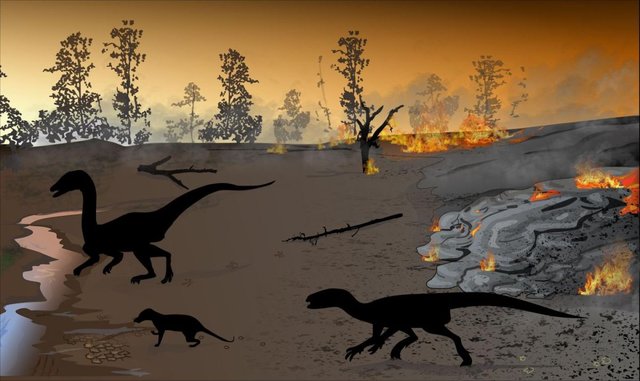
This story begins with a dusty photo. In 2018, Emese Bordy, an associate professor of sedimentology at the University of Cape Town, discovered it by chance inside an unpublished master's dissertation that dated back to 1964. The image, she realized, showed an ancient dinosaur footprint preserved on what became a farm in South Africa.
After tracking down the current owner of the farm, with the help of a nature photographer and historian, Bordy gathered a team to investigate the farmer's property (with his permission) for more ancient dinosaur footprints. The farm sits in South Africa's Karoo Basin, which is known to contain deposits of igneous rocks from lava flows that occurred in the Early Jurassic period and a good deal of preserved fossils from that time.
The team then discovered a total of 25 footprints making up five trackways preserved in sandstone between basalt layers — igneous rock formed from the rapid cooling of lava. The fossil tracks were likely made 183 million years ago as the paleo-beasts stomped along an ancient stream with moist, sandy banks. "The properties of the sandstone allow us to tell that the tracks were deposited in seasonal streams that run during flash flood events," Bordy said.
By measuring the size of the footprints and the length of the space between the prints, then comparing them with relevant numbers in the science literature, Bordy and her team found that some of the footprints belonged to large carnivorous dinosaurs that walked on two feet, such as species in the Coelophysis genus.
Shared On DLIKE

Hi! I am a robot. I just upvoted you! I found similar content that readers might be interested in:
https://www.livescience.com/dinosaur-firewalkers-karoo.html
Downvoting a post can decrease pending rewards and make it less visible. Common reasons:
Submit